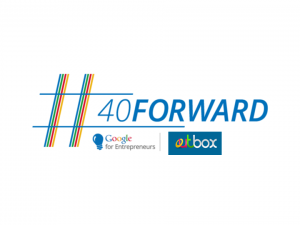You are here
Add new comment
Launching The Women Passion program (WOPA) under the #40Forward initiative
Submitted by richardzulu on 11 March 2014 - 2:35pm
This month, we are excited to launch the Women Passion program (WOPA), an experiential based learning program, supported by Google for Entrepreneurs under the #40Forward initiative, that seeks to train up-to 100 women in programming and entrepreneurship skills. Our mission is to foster the creation of women entrepreneurs that address the intersection of opportunities/problems in community with their passions and interests.
For the past one year and eight months that we have been operational, we have been trying to find various ways on how to increase the number of female participants in our programs. To this end, our founder Richard Zulu then worked together with a number of interested individuals to startup the Girl-geek kampala initiative, an independent initiative to celebrate and promote women and girls in science and technology in Uganda with it’s home at Outbox.
Under Girl-geek Kampala, we hosted a number of trainings and networking sessions. However, what stood out during the trainings was the high number of girls that dropped out. Ampaire Christine, a co-founder of the Girl geek kampala initiative, was at the helm of organising and overseeing these trainings and shared these as the learnings. We have also included how WOPA is rethinking it’s approach from these learnings.
Learnings and course correction
Lesson 1: Setting expectations for the participants and from the participants is very important. In our first training, the expectations from both ends were not stressed enough hence girls came and went as they pleased.
WOPA approach: User-centered design approach
To develop a better understanding of participants expectations, we opened up a pre-registration form for potential participants which also included a survey that was not only trying to gauge the skill-set of the potential participants but also developing an understanding on their expectations.
This survey is also included within the registration form itself.
More to that, the first session of the program will be a design thinking workshop focused on setting expectations for both the participants and program facilitators.
We believe this will create an inclusive program that takes into consideration expectations of our participants.
Lesson 2: Let all trainings be personal and highly involving. One way trainings led to a high number of dropouts.
WOPA Approach: experiment with experiential program
In order to demonstrate value to the participants, we are making the program experiential where participants will have to work with their target users in order to realise their projects. This will definitely involve customer interviews, engaging with target users while building mvp etc.
We have also incorporated weekly retrospectives with the facilitators to figure out the issues encountered in a week and how to course correct.
Lesson 3: Patient trainers who can also demonstrate passion go a long way in inspiring participants.
WOPA Approach: use facilitators and a steering committee from past Girl Geek trainings
Given that shortfalls they realised from our previous trainings, we have gone ahead to incorporate some of the participants from the Girl geek trainings to deliver the content for this program. They understand what is needed to keep the participants highly interested in the program.
Lesson 4: Let the girls see their goals come a step closer to reality every week. If they do not see this, they will leave early
WOPA Approach: Have the girls work on projects they love
With our User-centered design approach, the participants will be asked to work on projects they love. Our role will be to support them realise their projects. More to that, we are allowing students in the program to consider their participation in this program as an internship. This is because of the feedback we have received from students who would like to incorporate this program within their studies.
Registration is now open to our program. Deadline for applications is 29th March 2014.
We have partnered with WOUGNET and are looking more partners to support this initiative. We are joining 39 other Google for Entrepreneurs partners to rethink the gender gap and build more inclusive networks.
Follow and participate in the conversation using the hashtag #WOPAUG #4OForward on twitter and Google+


